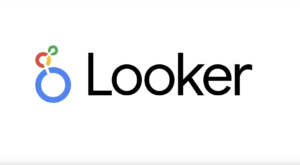Introduction: The Importance of Data in Marketing
In today’s digital age, data plays a crucial role in marketing. It provides businesses with valuable insights into their customers, helps them track the performance of their marketing campaigns, and enables them to make informed decisions. With the vast data available, businesses must leverage it effectively to stay competitive.
Data allows businesses to understand their customers better, identify their needs and preferences, and tailor their marketing strategies. Businesses can gain insights into customer behavior, demographics, and purchasing patterns by analyzing data. This information can create targeted marketing campaigns that resonate with the target audience.
What is a Marketing Dashboard?
A marketing dashboard is a tool that provides businesses with a visual representation of their marketing data. It consolidates data from various sources, such as social media platforms, website analytics, email marketing campaigns, and more, into one centralized location. This allows businesses to track and monitor their marketing efforts in real-time easily.
A marketing dashboard typically consists of charts, graphs, and metrics that overview key performance indicators (KPIs) relevant to the business’s marketing goals. These KPIs can include website traffic, conversion rates, social media engagement, email open rates, and more. By having all this information in one place, businesses can quickly assess the effectiveness of their marketing strategies and make data-driven decisions.
How a Marketing Dashboard Can Benefit Your Business
Using a marketing dashboard offers several advantages for businesses. Firstly, it provides a comprehensive view of all marketing activities in one place. This saves time and effort by eliminating the need to manually gather data from different sources and compile it into reports. With a marketing dashboard, businesses can access real-time data and track progress toward their marketing goals.
Secondly, a marketing dashboard allows businesses to identify trends and patterns in their data. Businesses can gain insights into customer behavior and preferences by analyzing these trends. This information can then be used to optimize marketing campaigns and improve customer targeting.
Lastly, a marketing dashboard helps businesses measure the success of their marketing efforts. By tracking key metrics, businesses can assess the performance of their campaigns and make data-driven decisions to improve results. This allows businesses to allocate resources more effectively and optimize their marketing strategies for better RO
Streamlining Data Collection and Analysis
One of the main benefits of using a marketing dashboard is that it streamlines the data collection and analysis process. Instead of manually gathering data from various sources, businesses can integrate their data sources into the dashboard, which automatically collects and updates the data in real-time.
This saves businesses time and effort, as they no longer need to spend hours compiling data from different platforms. With a marketing dashboard, businesses can access all their marketing data in one place, making it easier to analyze and draw insights.
Real-time data is also crucial for businesses to make informed decisions. By having access to up-to-date information, businesses can respond quickly to changes in the market and adjust their marketing strategies accordingly. This allows them to stay ahead of the competition and capitalize on new opportunities.
Identifying Trends and Patterns
A marketing dashboard is an invaluable tool for identifying trends and patterns in marketing data. By visualizing data in charts and graphs, businesses can easily spot patterns that may not be apparent when looking at raw data.
For example, a marketing dashboard may reveal that certain social media platforms drive more traffic to a website than others. This information can help businesses allocate their resources more effectively by focusing on platforms that generate the most engagement.
Businesses can also gain insights into customer behavior by identifying trends and patterns. For instance, a marketing dashboard may show that customers make purchases during specific times of the day or week. With this information, businesses can optimize their marketing campaigns to target customers during these peak times.
Improving Campaign Performance
A marketing dashboard is an essential tool for tracking the performance of marketing campaigns. By monitoring key metrics such as click-through rates, conversion rates, and engagement levels, businesses can assess the effectiveness of their campaigns and make data-driven decisions to optimize performance.
For example, if a marketing dashboard shows that a particular email campaign has a low open rate, businesses can analyze the data to identify possible reasons. It could be that the subject line is not compelling enough or that the email content is irrelevant to the target audience. Armed with this information, businesses can make adjustments to improve the performance of future email campaigns.
Businesses can iterate and optimize their marketing strategies for better results by continuously monitoring campaign performance through a marketing dashboard. This allows them to maximize their ROI and achieve their marketing goals more effectively.
Enhancing Customer Insights
A marketing dashboard provides businesses with valuable insights into their customers. Businesses can gain a deeper understanding of their target audience by analyzing data such as demographics, purchasing behavior, and engagement levels.
For example, a marketing dashboard may reveal that a significant portion of a business’s customer base consists of millennials. With this information, businesses can tailor their marketing strategies to appeal to this demographic. They can create content that resonates with millennials and use popular channels among this age group.
By gaining insights into customer preferences and behavior, businesses can improve customer experience and build stronger customer relationships. This can lead to increased customer loyalty and repeat business.
Making Informed Business Decisions
A marketing dashboard empowers businesses to make informed decisions based on data. Businesses can use data to drive decision-making instead of relying on gut feelings or guesswork.
For example, businesses can reallocate resources to more effective channels if a marketing dashboard shows that a particular marketing channel is not generating the desired results. This ensures that businesses invest their time and money in strategies likely to yield the best results.
Businesses can minimize risks and maximize opportunities by using data to make decisions. They can identify areas for improvement and take proactive steps to optimize their marketing strategies. This allows businesses to stay agile and adapt to changes in the market more effectively.
Choosing the Right Marketing Dashboard for Your Business
When choosing a marketing dashboard for your business, several factors must be considered. Firstly, you need to assess your business’s specific needs and goals. What metrics are most important to your business? What data sources do you need to integrate into the dashboard? Understanding your requirements will help you choose a dashboard that aligns with your business objectives.
Secondly, consider the ease of use and user interface of the dashboard. A user-friendly dashboard will make navigating and analyzing data easier for your team. Look for a dashboard that offers customizable features so you can tailor it to your specific needs.
Lastly, consider the scalability and flexibility of the dashboard. As your business grows, you may need to add more data sources or expand the scope of your marketing efforts. Choose a dashboard that can accommodate these changes and grow with your business.
Several popular marketing dashboard options are available in the market, such as Google Analytics, HubSpot, and Tableau. Each platform offers different features and capabilities, so it’s important to evaluate them based on your specific needs.
Conclusion: Leveraging the Power of Data for Marketing Success
In conclusion, data plays a crucial role in marketing success. By leveraging data effectively, businesses can gain valuable insights into their customers, track the performance of their marketing campaigns, and make informed decisions.
A marketing dashboard is an essential tool for businesses looking to harness the power of data. It streamlines data collection and analysis, helps identify trends and patterns, improves campaign performance, enhances customer insights, and enables businesses to make informed decisions.
When choosing a marketing dashboard for your business, consider your specific needs and goals, ease of use, and scalability. By selecting the right dashboard and leveraging data, businesses can achieve marketing success and stay ahead of the competition.
If you want to learn more about marketing dashboards, Studio Insighters has a comprehensive guide covering everything you need to know. This article provides valuable insights into the benefits of CMO dashboards and how they can help you track and analyze your marketing efforts effectively. Whether you’re a beginner or an experienced marketer, this guide is a must-read. Check it out here.







